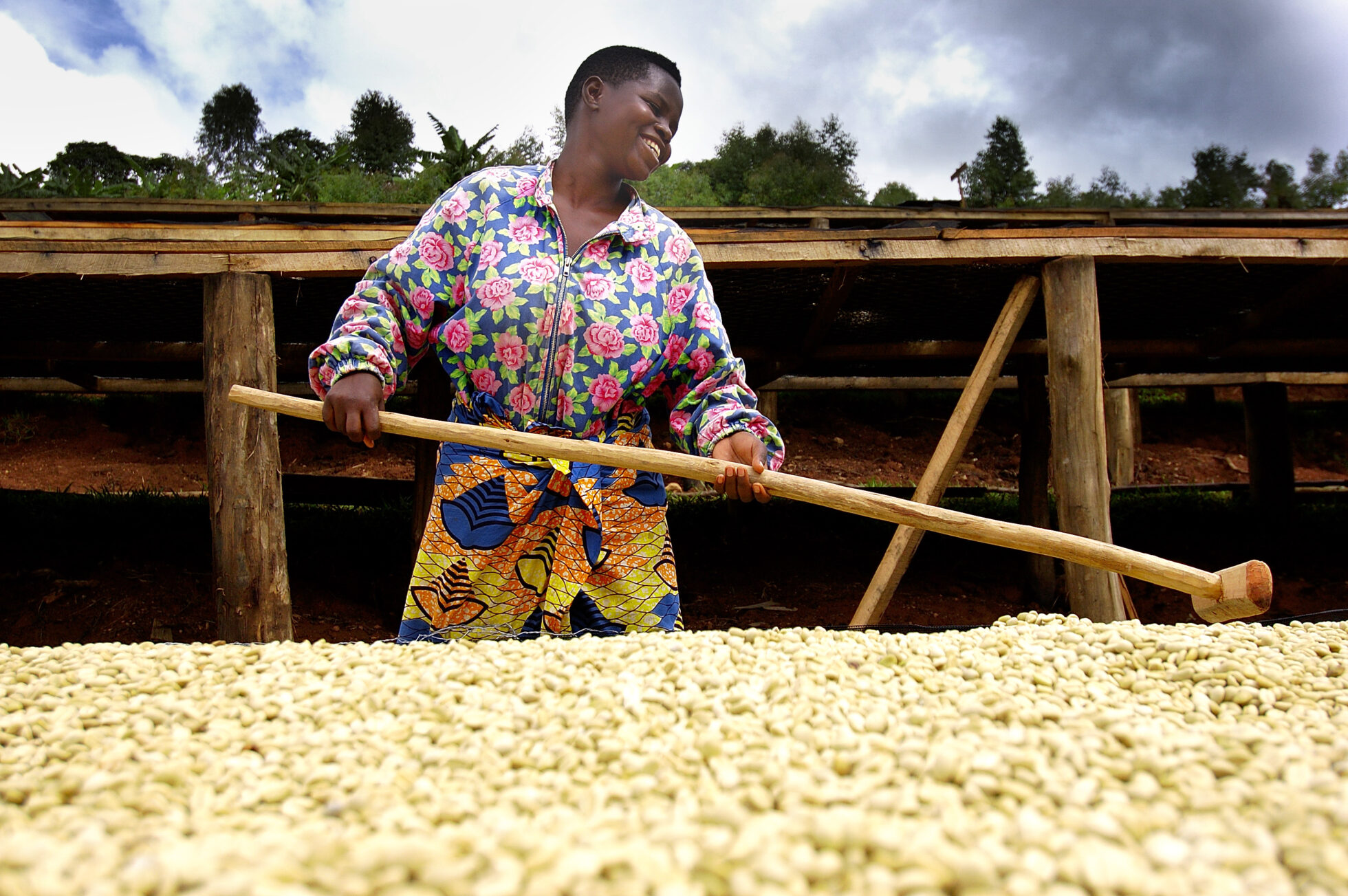Maraba: Rebuilding Lives and Livelihoods After Genocide in Rwanda

When genocide broke out in Rwanda in early April 1994, coffee farmers around the small town of Maraba had just begun the harvest. Early pickings were underway, and the coffee cherries were in their final weeks of maturation.
Three months later the genocide had run its course, leaving almost a million dead and many more displaced. Thousands of smallholder farmers returned from refugee camps to find their farms in ruins. War had devastated the country’s agricultural sector, and in the years that followed, producers struggled to rebuild. The majority of farming families had little income and were often unable to afford even basic necessities like clothing, medicine, or housing.
Uniting A Community

In Kinyarwanda, Abahuzamugambi means “people united in purpose.” In 1999, as the community continued to recover and rebuild, 70 smallholder coffee farmers united to form the Abahuzamugambi cooperative, also known as Maraba.
Like most coffee cooperatives, Maraba grappled with liquidity challenges: the main coffee harvest is from April to June, yet most expenses occur between January and April when there is typically very little money remaining from the previous harvest. As a result:
“There was not enough money left to pay producers up front for the new harvest,” says Shema Jean de Dieu, an accountant at Maraba. The disastrous timing of the 2001 international coffee crisis and the ensuing volatility in prices, she notes, “made it very difficult to compete with the middlemen.”
Root Capital disbursed its first loan to Maraba in 2005, enabling the cooperative to pay farmers competitive prices for their coffee. “Without the loan, we simply could not compete in the local market,” says Jean de Dieu.
Continuing Growth

Since then, business has improved every year. Maraba has continued to receive financing from Root Capital for other projects, like the purchase of a new hulling machine for their dry mill, which has improved coffee quality. Enhancements like these have allowed farmers to access the high-end specialty coffee market for the first time and generate the highest revenue for smallholder farmers in Rwandan history.
“Even before the genocide, we didn't have a market for the coffee and our coffee wasn't valuable. But now, thanks to the financing the cooperative has been able to get, we have strengthened and unified the production and our coffee is bought at a better price,” says Christian Ruzigama, a Maraba producer.
With this increase in revenue, the cooperative has grown to more than 1,300 registered members. Almost 40 percent of them are women, many widowed by the genocide. The cooperative has also achieved fair trade certification, which opens it to additional markets and higher prices.
“Take a look at Maraba today,” says Maraba’s president Rurangwa Juvenal, smiling broadly. “We have our own cars, dry-mill and washing station, and the children are going to school. Now we are all able to cultivate more coffee and earn more money. I am very happy with the way the cooperative has developed. Day by day things are improving.”
Information in this client profile is up-to-date as of publishing time.